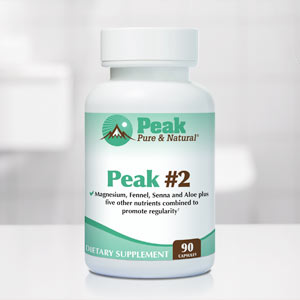Get Easy Health Digest™ in your inbox and don’t miss a thing when you subscribe today. Plus, get the free bonus report, Mother Nature’s Tips, Tricks and Remedies for Cholesterol, Blood Pressure & Blood Sugar as my way of saying welcome to the community!
High blood pressure? Lower it and your dementia risk

Over the past few years, it’s become increasingly obvious that heart health and brain health are closely intertwined.
Unmanaged high blood pressure can weaken small blood vessels in the brain. Over time, these damaged blood vessels can no longer deliver the same amount of oxygen to the brain, causing nerves and brain cells to gradually die off.
This leads to what’s known as “white matter lesions,” areas of the brain that have been associated with cognitive decline and dementia.
Judging from this, it seems obvious that lowering your blood pressure can reduce your dementia risk. But is there proof of that?
Blood pressure and dementia risk
In an exciting four-year study known as the China Rural Hypertension Control phase III (CRHC-3), a diverse team of researchers looked into how controlling high blood pressure might affect the risk of dementia. They gathered nearly 34,000 participants who were struggling with uncontrolled hypertension.
The participants were split into two groups: one received special care, while the other went about their usual care. The intervention group had community health providers, under the guidance of primary care doctors, start them on medication to manage their blood pressure. This group also got support with lifestyle changes, medication management, and tips for keeping track of their blood pressure from home. The aim was to get their blood pressure down to a healthier level—specifically, less than 130 mm Hg for systolic and 80 mm Hg for diastolic.
On the other hand, the usual care group just had their blood pressure checked at clinics without any additional support. After 48 months, the results were telling: the intervention group was taking an average of three different blood pressure medications, while the usual care group managed with just 1.2 medications.
The findings were really positive. About 4.6% of the intervention group were diagnosed with dementia, compared to 5.4% in the usual care group.
This means that treating high blood pressure reduced the risk of developing dementia by about 15%. Not only that, but the intervention group also experienced fewer issues with cognitive impairment without dementia, a significant indicator of brain health.
Throughout the study, the intervention group managed to lower their blood pressure by an impressive 22.0/9.3 mm Hg, and they had fewer serious health complications during the trial compared to their counterparts in the usual care group.
Dr. Jiang He from UT Southwestern Medical Center shared the study’s groundbreaking results, highlighting it as the first to show a significant reduction in dementia risk linked to high blood pressure treatment. These findings align with the results from a similar U.S. study, the SPRINT MIND trial, which found that stricter blood pressure control could also lower the risk of cognitive decline and dementia.
Getting blood pressure under control
The researchers did note that participants were relatively young and the follow-up was relatively short. The baseline age was about 63 in both participant groups.
However, most experts agree that cognitive decline typically begins during one’s 60s and beyond but can be influenced by many factors.
If you have high blood pressure now, make sure you and your doctor discuss options for controlling it. If it’s only mildly high, the following lifestyle adjustments may be enough to bring it into the normal range:
- Eat a heart-healthy diet (the DASH diet is a good example). Make sure it includes plenty of potassium-rich fruits and vegetables.
- Make sure you’re getting plenty of healthy fats and omega-3s, like the kind you get from fatty fish such as salmon and tuna. An analysis published in the Journal of the American Heart Association identified the optimal daily amount needed to help lower blood pressure.
- Get some exercise. Research has found it can be as effective as medication.
Editor’s note: There are perfectly safe and natural ways to decrease your risk of blood clots including the 25-cent vitamin, the nutrient that acts as a natural blood thinner and the powerful herb that helps clear plaque. To discover these and other secrets of long-lived hearts, click here for Hushed Up Natural Heart Cures and Common Misconceptions of Popular Heart Treatments!
Sources:
Common Intervention Lowers Dementia Risk, Trial Shows — MedPage Today
Blood pressure reduction and all-cause dementia in people with uncontrolled hypertension: an open-label, blinded-endpoint, cluster-randomized trial — Nature Medicine
The correlation between aging and cognitive decline — Greater Good Health














